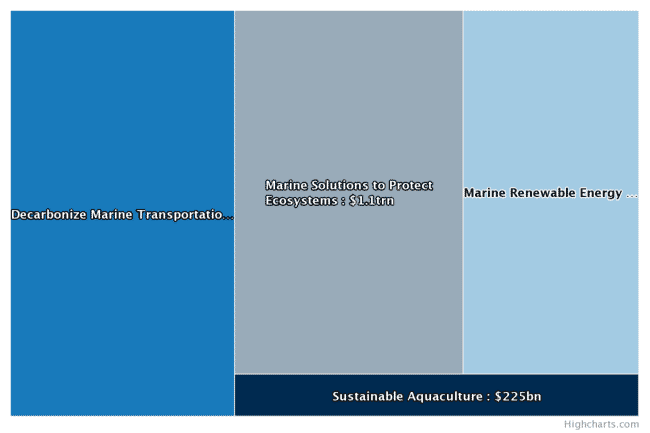Morgan Stanley argues that sustainable aquaculture is one of four big opportunities for ocean impact investment. A new report states that over $3 trillion of funding is needed in the coming decades to protect our oceans so they can continue to tackle climate change, protect biodiversity and support inclusive economic growth.
The report points to the recent UN agreement on the High Seas Treaty – a legal framework that creates protected maritime areas and sets 2030 targets to maintain the health and biodiversity of the oceans – as a turning point for sustainable investment opportunities to protect the world’s oceans.
As Jessica Alsford, Morgan Stanley chief sustainability officer and CEO of the Institute for Sustainable Investing, explains in the report: “With a framework for ocean conservation now in place, there is a strong case for investors to assess opportunities in the blue economy.”

According to Morgan Stanley, aquaculture requires mostly working capital or trade finance, but an estimated $150-300 billion in capital expenditure is also needed over the next decade to support demand growth © International Energy Agency, United Nations Environment Programme, University Maritime Advisory Services, The Nature Conservancy
The report argues that: “Approximately half of global seafood production today comes from farmed sources, or aquaculture, mostly in Asia. The other half comes from wild fish stocks, which are facing pressure from overfishing as global seafood demand continues to grow.
“Expanding aquaculture to meet this demand is a major investment opportunity, with an estimated $150 billion to $300 billion in capital expenditures needed to expand capacity in the next 10 years, which should be accompanied with efforts to mitigate the water pollution and labour risks inherent to the aquaculture industry.
In some cases, sustainable aquaculture can also serve climate objectives as fish farms can also be co-located with new renewable energy sites and farmed seafood is a comparatively low-carbon source of protein.”
Identifying sustainable aquaculture as a major area where blue economy investment opportunities lie is a huge boost to the industry as it expands globally, supporting local economies and suppling protein for the growing population.




